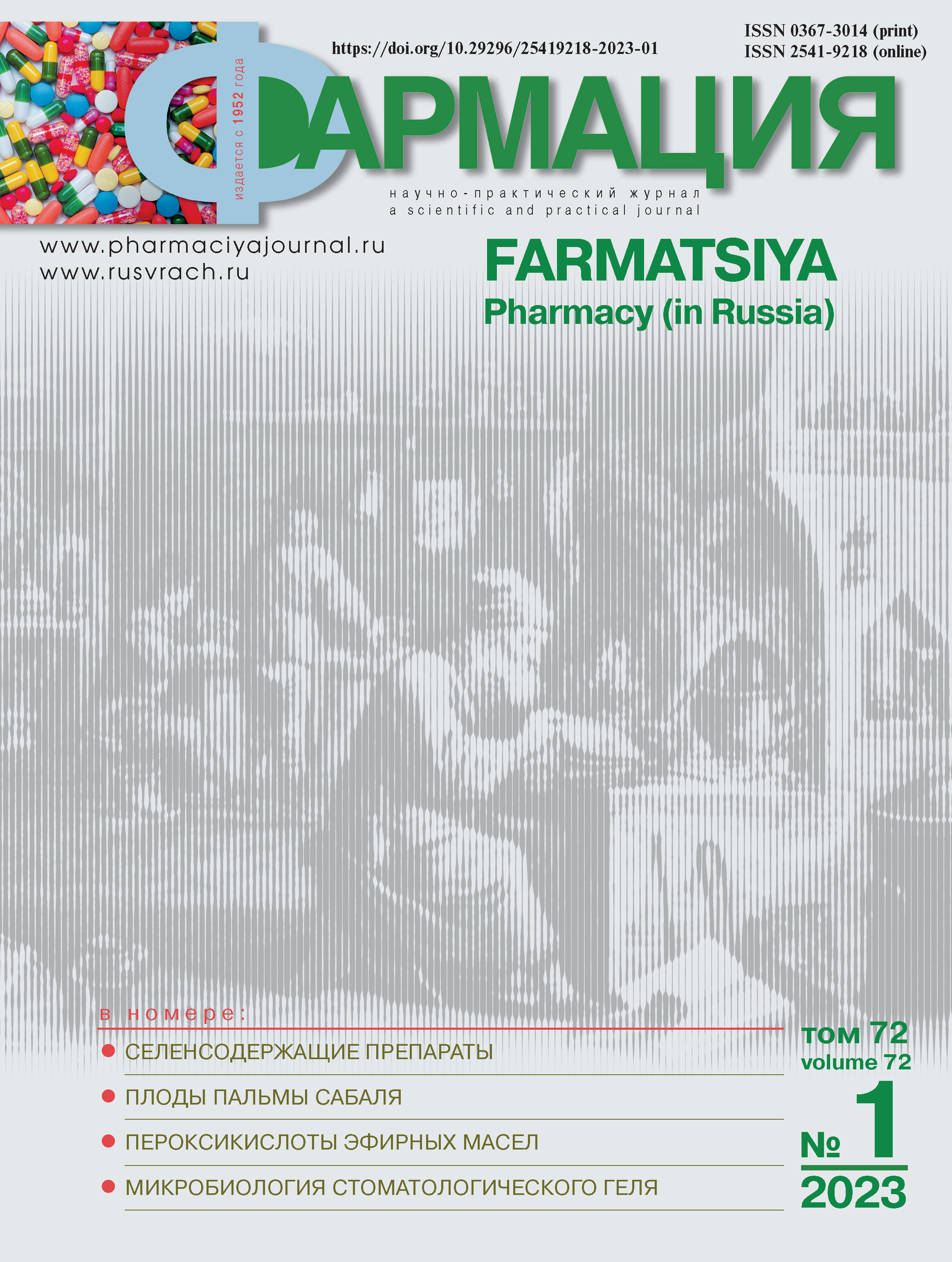Performance indicators of the medicines used in squamous cell lung cancer
- Authors: Suyunov N.D.1, Rajabova N.X.1
-
Affiliations:
- Tashkent Pharmaceutical Institute
- Issue: Vol 72, No 1 (2023)
- Pages: 36-48
- Section: Organization and economy
- URL: https://journals.eco-vector.com/0367-3014/article/view/313326
- DOI: https://doi.org/10.29296/25419218-2023-01-06
- ID: 313326
Cite item
Abstract
Introduction. Squamous cell lung cancer is a type of non-small cell lung cancer and is specific in its clinical and pathological characteristics, the treatment process is somewhat difficult due to such reasons as old age, the presence of concomitant diseases, the location of the main tumor focuses in the center of the lung.
Objective: Determination of the effectiveness of medicines used in the treatment of lung cancer, by intellectual analysis methods.
Material and methods. The study used artificial intelligence analysis methods to process statistical data on drug consumption.
Results. According to the results of the evaluation of the effectiveness of medicines used in squamous cell lung cancer, it was revealed that such medicines as: Cisplatin ebeve® (50 mg/100 ml), Carboplatin-ebeve® (150 mg/15 ml), Carboplatin-ebeve® (450 mg/45 ml), are highly effective; Gemcitabine Ebeve® (200 mg/5 ml), Gemcitabine Ebeve® (1000 mg/25 ml), Etoposide ebeve® (100 mg/5 ml), Paclitaxel ebeve® (30 mg/5 ml), Paclitaxel ebeve® (100 mg/16,7 ml), Paclitaxel ebeve® (300 mg/50 ml), Docetaxel Ebeve ® (10 mg/ml), Docetaxel Ebeve® (20 mg/2 ml), Docetaxel Ebeve® (80 mg/8 ml), Avastin® (100 mg/4 ml), Avastin® (400 mg/16 ml), Erlonib (25 mg, No. 30), Erlonib (100 mg, No. 30), Erlonib (150 mg, No. 30), Erlonix (100 mg, No.30), Erlonix (150 mg, No. 30), Ertinob (100 mg, No. 30) Ertinob (150 mg, No. 30).
Conclusion. Based on the performance indicators of medicines used in squamous cell lung cancer, priority groups of them have been identified for admission.
Full Text
About the authors
Nizom Davurovich Suyunov
Tashkent Pharmaceutical Institute
Email: suyunovn.d.5555@gmail.com
ORCID iD: 0000-0002-2712-958X
Doctor of Pharmaceutical Sciences, professor, Head of Department of pharmaceutical organization
Uzbekistan, 45, Aybek Street, Tashkent, 100015Nargiza Xalimovna Rajabova
Tashkent Pharmaceutical Institute
Author for correspondence.
Email: nargiza-rh@mail.ru
ORCID iD: 0000-0003-2237-150X
basic doctoral student of the Department of pharmaceutical organization
Uzbekistan, 45, Aybek Street, Tashkent, 100015References
- Zaitsev A.M., Kobyletskaya T.M., Kisariev S.A., Mikhailov N.I., Datsenko P.V., Kirsanova O.N. Long-term follow-up of a patient with squamous cell lung cancer with synchronous metastatic lesion of the brain (Clinical observation and literature review). Oncology. Journal named after P.A. Herzen. P.A. Herzen. 2022; 11 (4): 51–7 (in Russian).
- Suyunov N.D. Pharmacoeconomic studies of drug provision for chronic obstructive pulmonary disease in Uzbekistan. Pulmonology. Moscow, 2011; 3: 64–9. doi: 10.18093/0869-0189-2011-0-3-64-69 (in Russian).
- Ignatiev N.A. Generalized estimates and local metrics of objects in intelligent data analysis. Monograph. Tashkent: “University”, 2014; 72 (in Russian).
- Madrakhimov Sh.F., Suyunov N.D., Khurramov A.Kh., Ikromova G.M. Calculating the generalized assessment of medicines belonging to the VEN group by means of intellectual analysis // News of UzMU, scientific journal of the National University of Uzbekistan named after M.Ulugbek. Tashkent, “University”, 2013; 2: 95–8.
- Rocha A.,S. Goldenstein. Multiclass from Binary: Expanding One-Versus-All, One-Versus-One and ECOC-Based Approaches. IEEE transactions on neural networks and learning systems. 2014; 25: 289–302. doi: 10.1109/TNNLS.2013.2274735
- Ignatyev N.A., Rakhimova M.A. Formation and analysis of sets of informative features of objects by pairs of classes. Artificial intelligence and decision making. 2021; 4: 18–26. doi: 10.14357/20718594210402
- Madrakhimov Sh. F., Rozikhodjaeva G. A. and Makharov K. T. Construction of fuzzy inference rules for medicines diagnostics problems. J. of Physics: Conf. Ser. 2032 012032, 2021; doi: 10.1088/1742-6596/2032/1/012032
- Krivenko M.P. Learning classification of incomplete clinical data. Informatics and its applications. 2017; 11 (3): 27–33. DOI: 10.14357/ 1 9922264 170303 (in Russian).
- Madrahimov Sh.F., Makharov K.T., Khurramov A.H. Selection of informative features with the account of data gaps. Problems of Computational and Applied Mathematics. 2022; 4 (42): 147–57 (in Russian).
- Rajabova N.X., Suyunov N.D. Questionnaire for specialist doctors on pharmacoeconomic evaluation of medicines used in the treatment of lung cancer. Printed in the printing house “Innovative Development Publishing House”. Tashkent, 2021; 18 (in Russian).
Supplementary files






